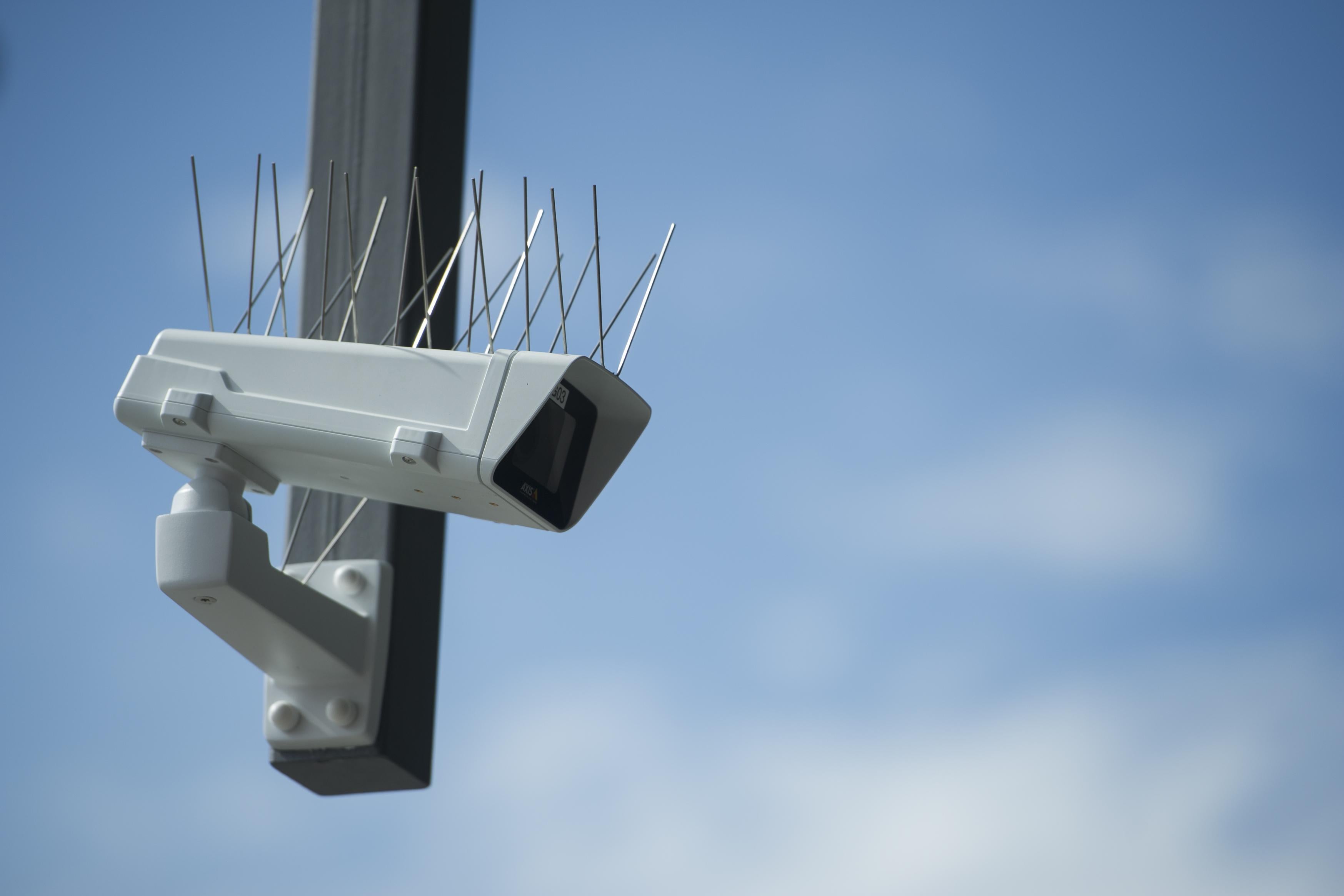Remember when Amazon mostly just sold books? Since its founding in 1994, the sprawling online marketplace has ballooned into one of the most powerful companies in the world. Now Amazon offers batteries, clothes, milk and eggs, hosting for your website, streaming movies—and now real-time facial recognition powers for police surveillance.
In November 2016, Amazon released a new service called Rekognition, which can “process millions of photos a day” to identify people and objects in the images. That data can then be used, as Amazon put it in a blog post at the time, to “perform visual surveillance, inspecting photos for objects or people of interest or concern” or for smart billboards that collect demographic data on passersby to create personalized ads. The company boasted it could identify up to 100 people in a single image, a valuable tool for surveillance of large crowds, like at protests, crowded department stores, or subway stations.
It didn’t take long for the police to get their hands on Amazon’s new surveillance tool. By December 2016, the sheriff’s department in Washington County, Oregon, became an early customer, according to a report in GovTech in 2017. The department wanted to match booking photos with surveillance footage, like of a crime captured on camera. Chris Adzima, a senior IT analyst with the county, told GovTech that the department’s mugshot database contained about 300,000 images of roughly 200,000 individuals. That database, Adzima said, is then run through Amazon’s Rekognition system to match with camera footage. According to public records obtained by American Civil Liberties Union, Amazon and Washington County built a mobile app for law enforcement to scan images against the county’s mugshot database on the go, too.
All of this happened without much debate—but that might change. On Tuesday, the ACLU, Human Rights Watch, the Council on American-Islamic Relations, and a host of other civil liberties and social justice organizations signed a letter demanding Amazon stop allowing law enforcement and government agencies use Rekognition. “As advertised, Rekognition is a powerful surveillance system readily available to violate rights and target communities of color,” the coalition letter reads. The coalition says that Amazon’s marketing materials raise serious concerns that the technology can be used to target communities of color, undocumented immigrants, and protesters engaged in First Amendment-protected activities.
Alongside the coalition letter, the ACLU shared internal documents from police departments and public information from Amazon that shed light on the ways the Rekognition system is being used. Take the city of Orlando, Florida. On Amazon’s Rekognition customer page, Orlando’s police chief calls their relationship “a unique, first-of-it’s-kind public-private partnership,” in which Amazon’s technology “provide[s] real-time detection and notification of persons-of-interests.” According to the public records obtained by the ACLU, Orlando’s police department has been a customer since 2017, when the company offered to build a proof-of-concept system that integrated the city’s camera system. Meanwhile, in Oregon, the ACLU’s documents show, Amazon offered to work directly with Washington County law enforcement to ensure that the facial recognition software met its needs. In previous promotional materials for Rekognition unearthed by the ACLU, Amazon recommends a use case in which the software is integrated with police body cameras: An image captured at the scene of a traffic stop or police questioning could be immediately scanned against a law enforcement database—say, of gang members—to find potential matches.
Police have been using facial recognition services for years, but mostly in partnership with smaller technology companies with a narrower focus than Amazon. The FBI even has its own face recognition database that is said to have access to more than 400 million images. In fact, about half of all American adults are in at least one law enforcement facial recognition data base, according to research from Georgetown Law. The Department of Homeland Security has even been using facial recognition software at some airports to catch people who have overstayed their visas.
But Amazon’s foray into partnering with law enforcement could open doors for other large, data-hungry tech companies. Facebook now counts over 2 billion monthly users, and more than 350 million photos are uploaded to the site every day. The company’s research suggests that Facebook holds “the largest facial dataset to date”—powered by DeepFace, Facebook’s deep-learning facial recognition system. Facebook has an agreement with the Federal Trade Commission that bars Facebook from using its facial recognition software beyond a user’s specified privacy settings without first getting “affirmative express consent,” but that requirement expires in 2021. In the meantime, Facebook has been working on new face detecting technology, like a feature that can identity a user even if her face is hidden or looking away, drawing from other unique identifiers, like hair, body shape, clothing, and posture. In 2017, Facebook was granted a patent for technology that can delivery ads based on a person’s perceived emotions based on camera footage.
In a statement, Amazon says that it requires customers to comply with the law and use the technology responsibly. But complying with the law isn’t the same as using the technology in a way that keeps users safe. Immigration and Customs Enforcement agents who use surveillance technology to find potentially undocumented people and separate families could be complying with the law. Police officers who decide to deploy facial recognition during a protest to single out and surveil activists could argue that their complying with the law, too.
Amazon makes a lot of money without these law enforcement surveillance contracts. Its CEO is the richest man on Earth. The company could opt to not contract with law enforcement to use its facial recognition software and still be doing just fine. Instead, Amazon seems eager to do even more in this space.
